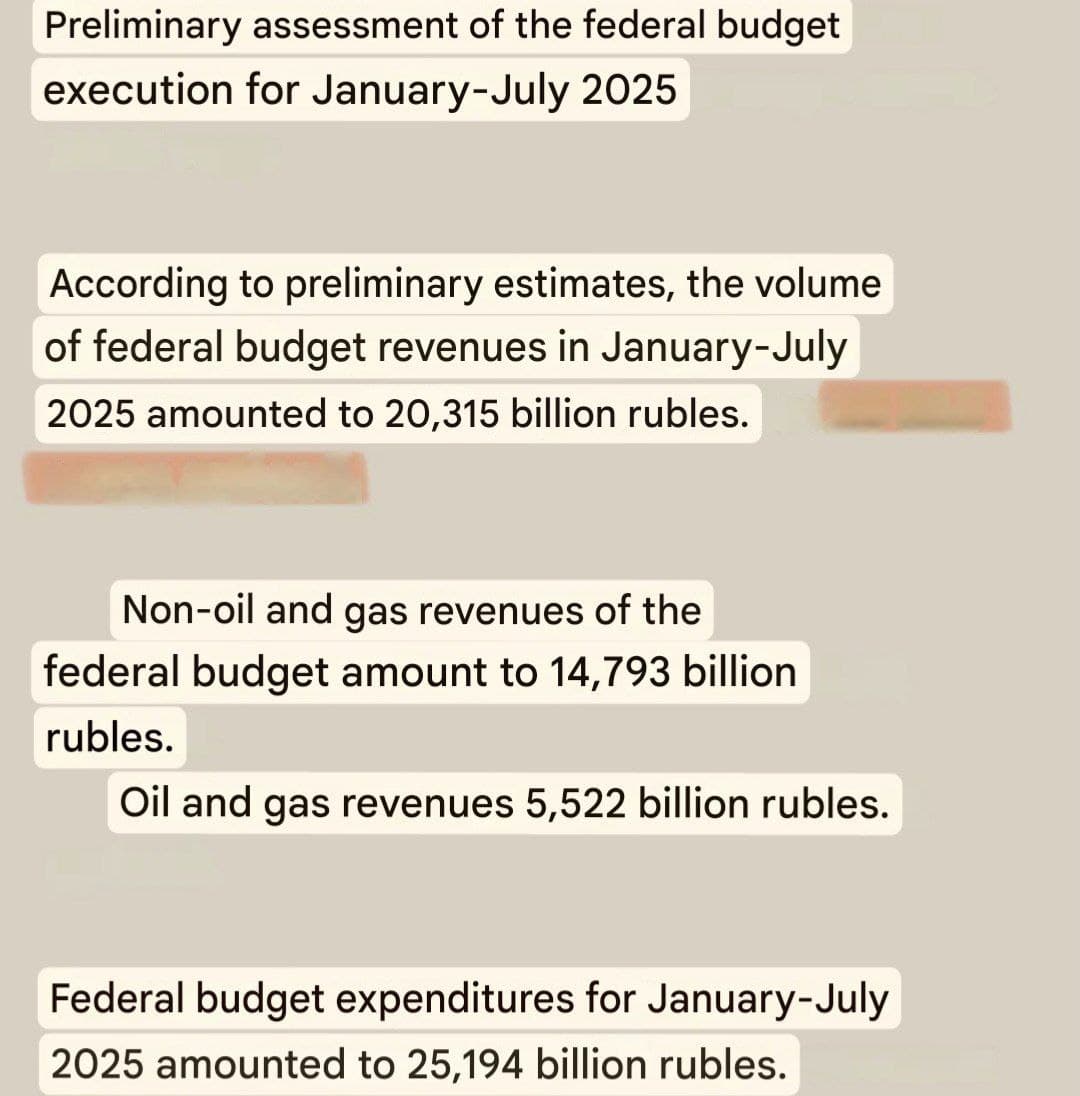Russia"s Budget Crisis Deepens: 5 Trillion Ruble Shortfall Exposes Economic Strain
In a troubling development for the Russian economy, the government has reported a staggering budget deficit of 5 trillion rubles (approximately $3 billion), marking a significant overspend compared to its revenues. This shortfall not only surpasses the previously anticipated annual deficit of 3.7 trillion rubles but is also projected to escalate to an alarming 8 trillion rubles by the end of December. As the situation unfolds, experts warn that this budgetary crisis could have far-reaching implications for the nation’s economic stability.
Background & Context
The Russian economy has been under intense pressure in recent years, grappling with sanctions, fluctuating oil prices, and the financial repercussions of its military engagements. The current budget shortfall highlights the severity of these challenges, as government expenditures continue to outpace revenues. This fiscal imbalance raises questions about the sustainability of Russia"s economic policies and its ability to fund essential services and infrastructure projects.
Historically, Russia has relied heavily on oil and gas exports to bolster its budget. However, with global energy prices experiencing volatility and domestic production facing constraints, the government’s revenue streams have been significantly impacted. The current shortfall is a stark reminder of the vulnerabilities inherent in an economy that is heavily dependent on commodity exports.
Key Developments
Recent reports indicate that the budget deficit is not only substantial but also growing rapidly. The Finance Ministry"s estimates suggest that the shortfall could reach 8 trillion rubles by December, raising alarms among economists and policymakers alike. The government’s response to this financial dilemma will be critical in shaping the economic landscape in the coming months.
Analysts speculate that the deficit could lead to cuts in public spending and potential increases in taxes, which may further strain an already struggling populace. The implications of such measures could exacerbate social tensions and hinder economic growth, creating a precarious situation for the Russian government as it navigates these turbulent waters.
Broader Impact
The ramifications of Russia"s budget crisis extend beyond its borders. As the country grapples with fiscal instability, its geopolitical posture may be affected. A weakened economy could limit Russia"s ability to project power internationally, particularly in regions where it has strategic interests. Additionally, the economic strain may lead to a reevaluation of Russia"s military expenditures, which have been a significant component of its national budget.
Experts are drawing parallels between Russia"s current situation and other nations facing similar fiscal challenges. For instance, the U.S. has also seen its own budgetary strains, as highlighted by the recent surge in household debt, which has reached $18.39 trillion. Such financial pressures can lead to broader economic instability, as previously reported in related coverage.
What"s Next
Looking ahead, the Russian government is likely to face critical decisions regarding its fiscal policy. The potential for increased taxation or cuts to public services could ignite public discontent, leading to protests or unrest. Furthermore, the government may need to seek alternative revenue sources or bolster its economic diversification efforts to mitigate the impact of the budget shortfall.
As the situation develops, observers will be closely monitoring the government"s actions and any potential reforms aimed at stabilizing the economy. The upcoming months will be pivotal in determining how Russia navigates this budget crisis and its broader implications for both domestic stability and international relations.







![[Video] Gunfire between Iraqi security forces and Sadr militias in Baghdad](/_next/image?url=%2Fapi%2Fimage%2Fthumbnails%2Fthumbnail-1768343508874-4redb-thumbnail.jpg&w=3840&q=75)
